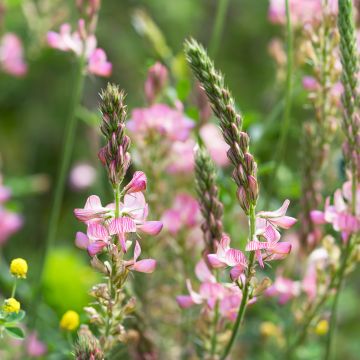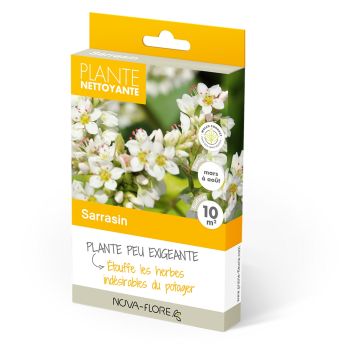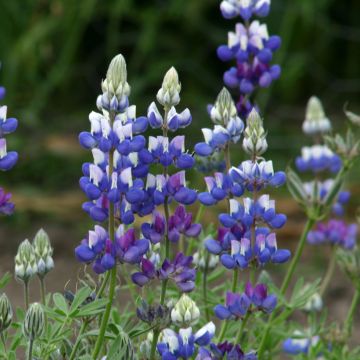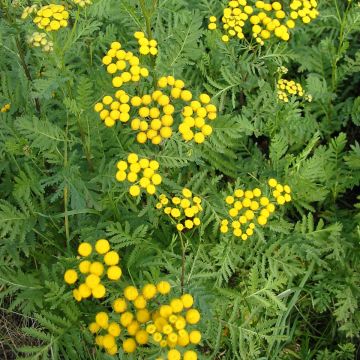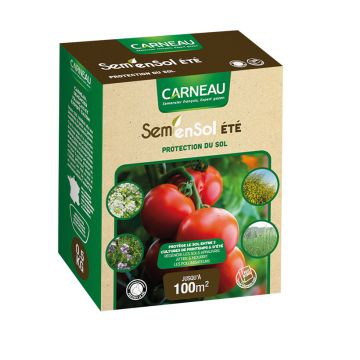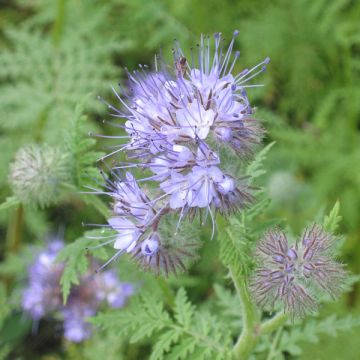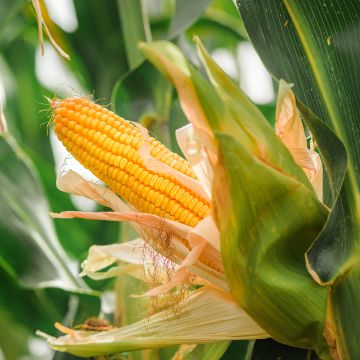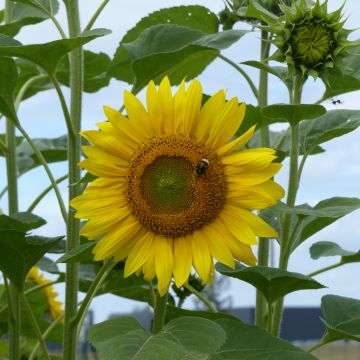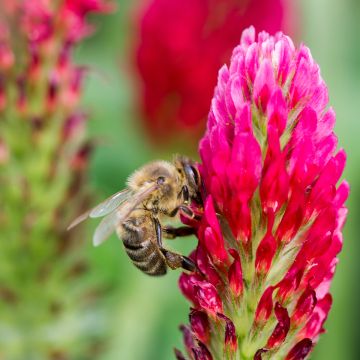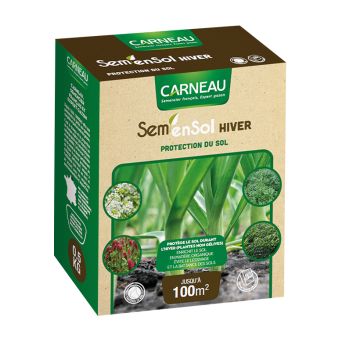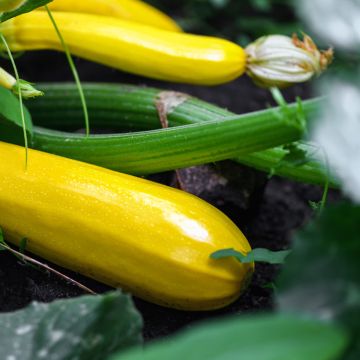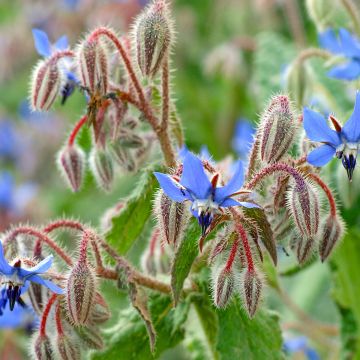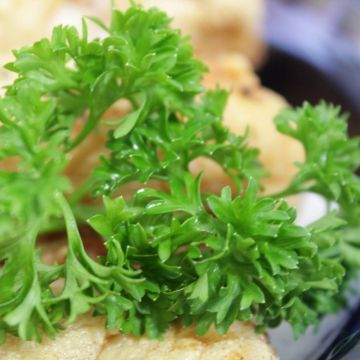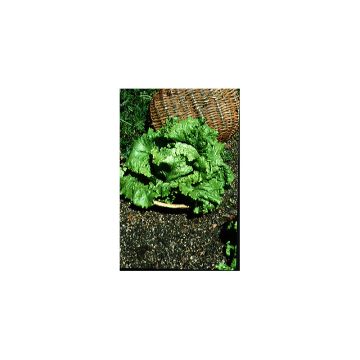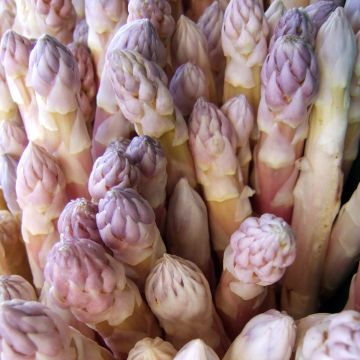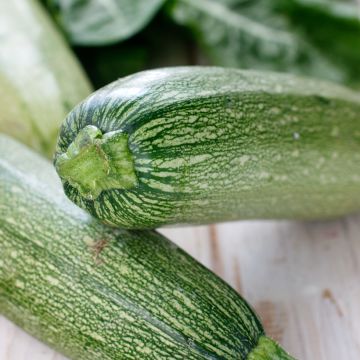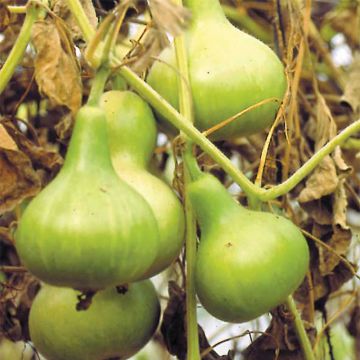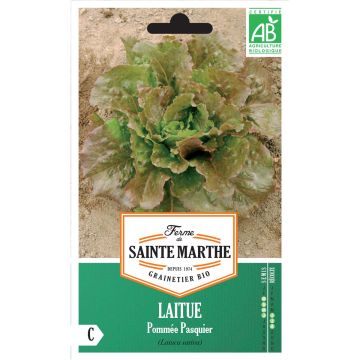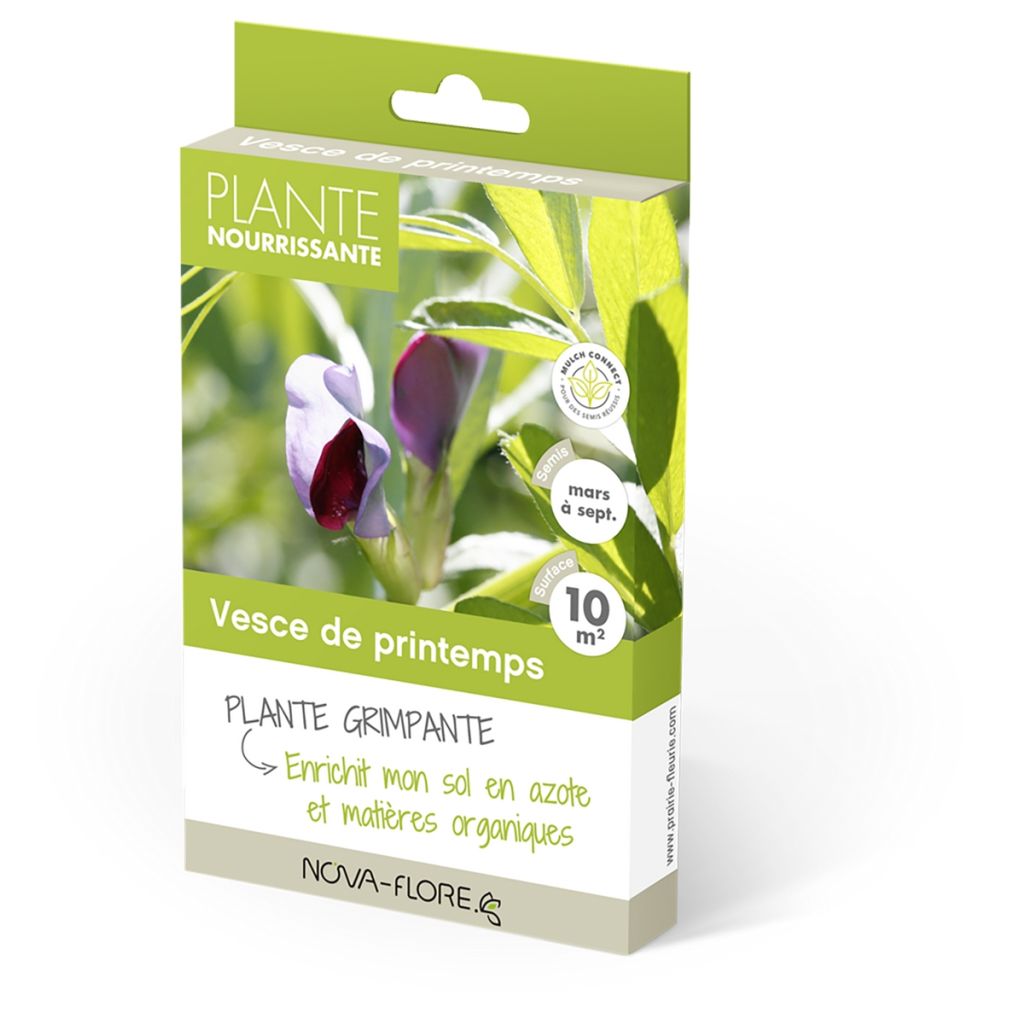

Common or spring vetch - Green manure
Common or spring vetch - Green manure
Vicia sativa
The seeds are mixed with a substrate, so it is difficult to know what one is sowing. Furthermore, I would have preferred to have the net weight of the seeds.
Christine G., 27/08/2018
Special offer!
Receive a €20 voucher for any order over €90 (excluding delivery costs, credit notes, and plastic-free options)!
1- Add your favorite plants to your cart.
2- Once you have reached €90, confirm your order (you can even choose the delivery date!).
3- As soon as your order is shipped, you will receive an email containing your voucher code, valid for 3 months (90 days).
Your voucher is unique and can only be used once, for any order with a minimum value of €20, excluding delivery costs.
Can be combined with other current offers, non-divisible and non-refundable.
Home or relay delivery (depending on size and destination)
Schedule delivery date,
and select date in basket
This plant carries a 6 months recovery warranty
More information
We guarantee the quality of our plants for a full growing cycle, and will replace at our expense any plant that fails to recover under normal climatic and planting conditions.
Description
The common or cultivated vetch, in Latin Vicia sativa, is a leguminous annual plant cultivated on a large scale as a forage plant, but also used as a green manure between two vegetable crops. It has the ability to fix atmospheric nitrogen in its roots, helps to loosen the soil, limits weed growth, and prevents soil compaction caused by rain. It is sown from March to June or from July to September in an empty plot in the vegetable garden or raised bed. It should be buried after destruction, from May to August or from October to February depending on the sowing date. Particularly suitable for poor and heavy soils, it is recommended to avoid using this green manure before planting beans, peas, onions, garlic, and shallots.
The vetch has flexible stems with pinnate leaves consisting of several leaflets and ending in a tendril. This tendril allows it to easily cling to supports since the vetch has a climbing habit. The vetch is often sown in association with a cereal crop (such as rye), which serves as a support. Its flowers have an irregular corolla with 5 petals and are violet in color. It produces elongated pods with protein-rich seeds. Thanks to its vigorous growth and extensive coverage, it effectively suppresses the development of weeds. Vetch is suitable for clay soils but is not very frost-resistant.
Widely used in organically cultivated gardens, green manures like vetch have many advantages. They nourish and improve the soil by providing various nutrients and stimulating soil microbial life. Their roots loosen, break up, and aerate the soil. Furthermore, the presence of a vegetative cover protects the soil from leaching (nutrient loss in sandy soil), rain compaction (formation of a crust in loamy soil), and erosion (caused by runoff on sloping terrain during heavy rains). This vegetative cover also helps to limit weed growth by preventing the growth of unwanted plants. Finally, green manures are often attractive to pollinators as they provide nectar and pollen.
Green manures are sown on uncultivated plots or intercalary plots between rows of vegetables. They can be naturally destroyed by frost or by mowing before seed formation. Once destroyed, they can be left in place as mulch, or shredded and incorporated into the top layers of the soil, or collected and added to compost.
Report an error about the product description
Harvest
Plant habit
Foliage
Botanical data
Vicia
sativa
Fabaceae
Western Europe
Annual
Other Green fertilisers
View all →Planting and care
- Sowing can be done from March to June or from July to September. Vetch is suitable for clay soils, even limestone and quite dry.
- Vetch is sown broadcast on a loosened and loosened soil. Cover the seeds with soil by passing the rake, compact the soil with the back of the rake and water lightly.
- Vetch does not require any particular maintenance during cultivation or watering.
- Vegetation destruction by hoeing: April to July or August to November
- Burying vegetation: May to August or October to February
Seedlings
Care
Intended location
-
, onOrder confirmed
Reply from on Promesse de fleurs
Similar products
Haven't found what you were looking for?
Hardiness is the lowest winter temperature a plant can endure without suffering serious damage or even dying. However, hardiness is affected by location (a sheltered area, such as a patio), protection (winter cover) and soil type (hardiness is improved by well-drained soil).

Photo Sharing Terms & Conditions
In order to encourage gardeners to interact and share their experiences, Promesse de fleurs offers various media enabling content to be uploaded onto its Site - in particular via the ‘Photo sharing’ module.
The User agrees to refrain from:
- Posting any content that is illegal, prejudicial, insulting, racist, inciteful to hatred, revisionist, contrary to public decency, that infringes on privacy or on the privacy rights of third parties, in particular the publicity rights of persons and goods, intellectual property rights, or the right to privacy.
- Submitting content on behalf of a third party;
- Impersonate the identity of a third party and/or publish any personal information about a third party;
In general, the User undertakes to refrain from any unethical behaviour.
All Content (in particular text, comments, files, images, photos, videos, creative works, etc.), which may be subject to property or intellectual property rights, image or other private rights, shall remain the property of the User, subject to the limited rights granted by the terms of the licence granted by Promesse de fleurs as stated below. Users are at liberty to publish or not to publish such Content on the Site, notably via the ‘Photo Sharing’ facility, and accept that this Content shall be made public and freely accessible, notably on the Internet.
Users further acknowledge, undertake to have ,and guarantee that they hold all necessary rights and permissions to publish such material on the Site, in particular with regard to the legislation in force pertaining to any privacy, property, intellectual property, image, or contractual rights, or rights of any other nature. By publishing such Content on the Site, Users acknowledge accepting full liability as publishers of the Content within the meaning of the law, and grant Promesse de fleurs, free of charge, an inclusive, worldwide licence for the said Content for the entire duration of its publication, including all reproduction, representation, up/downloading, displaying, performing, transmission, and storage rights.
Users also grant permission for their name to be linked to the Content and accept that this link may not always be made available.
By engaging in posting material, Users consent to their Content becoming automatically accessible on the Internet, in particular on other sites and/or blogs and/or web pages of the Promesse de fleurs site, including in particular social pages and the Promesse de fleurs catalogue.
Users may secure the removal of entrusted content free of charge by issuing a simple request via our contact form.
The flowering period indicated on our website applies to countries and regions located in USDA zone 8 (France, the United Kingdom, Ireland, the Netherlands, etc.)
It will vary according to where you live:
- In zones 9 to 10 (Italy, Spain, Greece, etc.), flowering will occur about 2 to 4 weeks earlier.
- In zones 6 to 7 (Germany, Poland, Slovenia, and lower mountainous regions), flowering will be delayed by 2 to 3 weeks.
- In zone 5 (Central Europe, Scandinavia), blooming will be delayed by 3 to 5 weeks.
In temperate climates, pruning of spring-flowering shrubs (forsythia, spireas, etc.) should be done just after flowering.
Pruning of summer-flowering shrubs (Indian Lilac, Perovskia, etc.) can be done in winter or spring.
In cold regions as well as with frost-sensitive plants, avoid pruning too early when severe frosts may still occur.
The planting period indicated on our website applies to countries and regions located in USDA zone 8 (France, United Kingdom, Ireland, Netherlands).
It will vary according to where you live:
- In Mediterranean zones (Marseille, Madrid, Milan, etc.), autumn and winter are the best planting periods.
- In continental zones (Strasbourg, Munich, Vienna, etc.), delay planting by 2 to 3 weeks in spring and bring it forward by 2 to 4 weeks in autumn.
- In mountainous regions (the Alps, Pyrenees, Carpathians, etc.), it is best to plant in late spring (May-June) or late summer (August-September).
The harvesting period indicated on our website applies to countries and regions in USDA zone 8 (France, England, Ireland, the Netherlands).
In colder areas (Scandinavia, Poland, Austria...) fruit and vegetable harvests are likely to be delayed by 3-4 weeks.
In warmer areas (Italy, Spain, Greece, etc.), harvesting will probably take place earlier, depending on weather conditions.
The sowing periods indicated on our website apply to countries and regions within USDA Zone 8 (France, UK, Ireland, Netherlands).
In colder areas (Scandinavia, Poland, Austria...), delay any outdoor sowing by 3-4 weeks, or sow under glass.
In warmer climes (Italy, Spain, Greece, etc.), bring outdoor sowing forward by a few weeks.






























